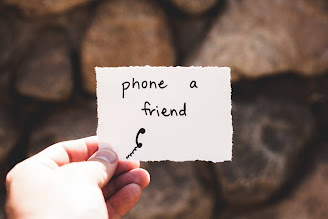Connect with Yourself and Others to Cope with Distress
Feel overwhelmed with career decisions, your academics, relationship issues, and or family stress? Know that you are not alone. In fact, research has shown that during the transition to adulthood individuals report experiencing increased anxiety and stressful life events, including relationship issues, financial struggles, or other challenges.1, 2, 3 The majority of college students report feeling overwhelmed (87%), exhausted (82%), and over half (54%) have said they feel overwhelmed with anxiety.3
 We are constantly told how stress is bad for us. It is true that stress hormones affect the brain, memory in particular.4,5 If we allow it, distress, or negative stress, can lead to poor mental and physical health outcomes, such as sleep quality, decreased decision-making abilities, and increased anxiety or depression. In these ways, stress can influence your career path, relationships, other elements that are critical to our sense of fulfillment and happiness.
We are constantly told how stress is bad for us. It is true that stress hormones affect the brain, memory in particular.4,5 If we allow it, distress, or negative stress, can lead to poor mental and physical health outcomes, such as sleep quality, decreased decision-making abilities, and increased anxiety or depression. In these ways, stress can influence your career path, relationships, other elements that are critical to our sense of fulfillment and happiness.
So, if it’s so bad for us, we should do everything we can do avoid it, right? Wrong. In fact, there are benefits of stress. And, it would be nearly impossible to walk through life without experiencing any kind of stress. If you did, you would likely lead a dull life.
I recently watched a Ted Talk by Psychologist, Kelly McGonigal, who said, “Go after what creates meaning in your life and trust yourself to handle the stress that follows.” I’ve included the video below for those of you who might be feeling overwhelmed by the stress in your life. The video is not overwhelmingly informative. But, her advice for 1) Thinking about your response to stress is helpful and 2) Believing in the power of human connection stuck with me.
Dr. McGonigal’s research has shown that individuals who have connected with themselves deeply enough to view their stress response as helpful, and those who reach out to and spend time caring for others have, subsequently, have fostered resiliency with respect to stress-related consequences. Seeking help from and connecting with others can be challenging for some of us. It makes us vulnerable, and that can be scary. Such vulnerability may be why men and individuals with certain ethnic backgrounds (for example, those who identify as Korean, Asian, Asian American) are less likely than others to seek help or social support. 6, 7
A few articles I have found helpful on connecting with yourself and others:
- Connecting with yourself: https://www.psychologytoday.com/blog/feeling-it/201304/8-powerful-ways-turn-loneliness-deep-connection
- Research on the influence of social support/believing in the importance of reaching out for help: http://www.ncbi.nlm.nih.gov/pmc/articles/PMC3195151/
- Helping/serving others: http://zenhabits.net/25-ways-to-help-a-fellow-human-being-today/
How Do YOU Respond to Stress? Take this Quiz:
Here’s to trusting yourself to handle life’s challenges, remembering that you don’t have to face them alone, making meaningful connections, and helping others along the way!
References:
1Turner, R. J., & Lloyd, D. A. (2004). Stress Burden and the Lifetime Incidence of Psychiatric Disorder inYoung Adults: Racial and Ethnic Contrasts. Archives of general psychiatry, 61, 481-488.
2Wilbum, V. R., & Smith, D. E. (2005). Stress, self-esteem, and suicidal ideation in late adolescents. Adolescence, 40, 33-45.
3American College Health Association. (2014). Undergraduate Reference Group Executive Summary. Retrieved from The National College Health Assessment reports: http://www.acha-ncha.org/reports_ACHA-NCHAII.html
4 Dias-Ferreira, E., Sousa, J. C., Melo, I., Morgado, P., Mesquita, A. R., Cerqueira, J. J., … & Sousa, N. (2009). Chronic stress causes frontostriatal reorganization and affects decision-making. Science, 325, 621-625.
5 Katerndahl, D. A., & Parchman, M. (2002). The ability of the stress process model to explain mental health outcomes. Comprehensive psychiatry, 43, 351-360.
6Friedman, H. S. (2001). Assessment and Therapy: Special Articles from the Encyclopedia of Mental Health. San Diego, CA: Academic Press.
7Taylor, S. E., Sherman, D. K., Kim, H. S., Jarcho, J., Takagi, K., & Dunagan, M. S. (2004). Culture and social support: who seeks it and why?. Journal of Personality and Social Psychology, 87, 354-362.
*Originally posted on the Career Skillet website (Permission granted by Jill Bowers).



Comments
Post a Comment